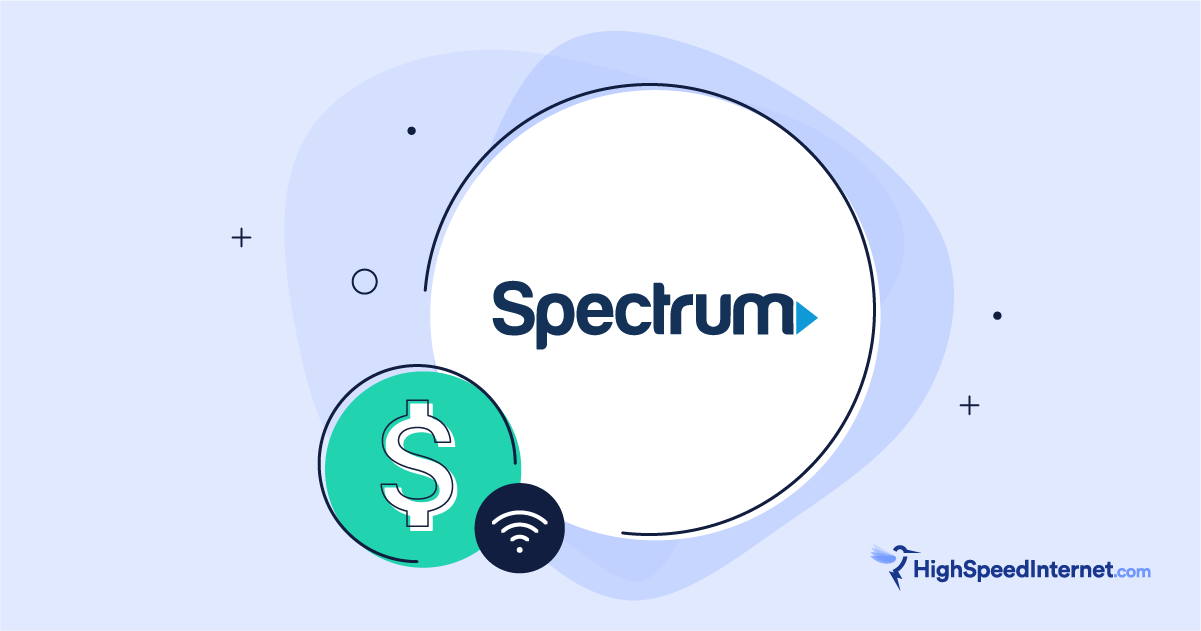5G Home Internet vs. Cable: Which Is Right for You?
5G home internet is cheap and fast, while cable is well-established and reliable
Oct 8, 2025 | Share
Brand Guides
-
5G Home Internet
- 87–1,000 Mbps
- $50.00–$75.00/mo.
- Affordable rates with no extra fees
- Unstable speeds
-
Cable Internet
- 25–2,000 Mbps
- $19.99–$105.00/mo.
- Fast speeds with wide availability
- Extra fees, contracts, and data caps
Data effective 08/27/2025. Offers and availability may vary by location and are subject to change.
There used to be a time when cable internet was the only game in town for many Americans who wanted fast Wi-Fi. But those days are coming to an end, and 5G home internet has lately emerged as a solid alternative.
Cable internet providers are still quite popular, offering speeds up to 2,000Mbps and a range of slower, budget-friendly options as well. But 5G internet providers are hustling these days to win over customers. 5G home internet plans deliver respectable speeds while the pricing is fair and affordable—with none of the onerous fees, term contracts, or misleading marketing tactics usually associated with cable.
So which of these internet types is better for you? Take a look at our guide below for a full rundown.
Bottom line
Get 5G home internet if you want cheap Wi-Fi and a deal to go with your cell phone plan. But stick to cable internet if you need a foolproof connection for a big household of Wi-Fi power users.
5G vs. cable—how do they compare?
| 5G home internet | Cable internet |
|---|---|
| Wireless connection with fluctuating speeds and more outages | Wired connection with steadier speeds and fewer outages |
| Fixed monthly rate with no extra fees | Monthly rates with extra fees for installation equipment |
| Limited availability (mostly found in cities and metro areas) | Nationwide availability |
| No data caps | Data caps with some providers |
| No annual contracts | Annual contracts with some providers |
| Lots of promos and discounts for new customers | Lots of promos and discounts for new customers |
5G home internet is cheaper and more forward-thinking of an internet option than cable. Verizon and T-Mobile, the two major 5G home internet providers right now, both give you solid speeds. The fixed wireless connections means your speeds can fluctuate quite a bit, and you’re likely to experience more outages than you would on a cable plan. But prices are cheap and you get unlimited data with your service. And there are no charges for installation or equipment, no annual contracts, and no 12-month price hikes.
Many cable plans come loaded with all of those extra fees and restrictions, which costs you more money and in some cases may lead to unpleasant surprises on your bill. Still, cable providers like Xfinity and Spectrum have a much larger national footprint than 5G providers. And the better-established infrastructure of cable ensures you get consistent speeds day in and day out.
Pro tip:
Want to know how your internet stacks up against a typical cable or 5G home connection? Take our speed test to find out.
5G home internet vs. cable internet—pros and cons
5G home internet
 Pros:
Pros:
- Low prices
- Lots of perks and discounts
- No data caps, annual contracts, or equipment/installation fees
 Cons:
Cons:
- Limited nationwide availability (cities and metro areas only)
- Fluctuating speeds
- More outages than cable
Cable internet
![]() Pros:
Pros:
- Fast speeds and gigabit options
- Wide nationwide availability
- Reliable connection with low chance of outages
 Cons:
Cons:
- Data caps and contracts with some providers
- Extra fees for installation and equipment
- “Promo” prices that go up after 12 months
What is 5G home internet?
5G home internet is a type of internet that works over a fixed wireless 5G network managed by a cellular phone company. (Some 5G home internet plans also use 4G LTE networks in areas where 5G isn’t as strong.) This service is relatively new and mostly available in major cities and metro areas. It delivers average speeds roughly equal to those of a basic or mid-level cable or fiber internet plan.
Best 5G home internet providers
| Provider | Starting price | Speed range | Order online |
|---|---|---|---|
|
| $50/mo.* w/ AutoPay | Up to 300–1,000Mbps | View Plans |

| $50/mo.† w/ AutoPay, plus taxes & fees. | Up to 498Mbps | View Plans |

| $60.00/mo.‡ | Up to 75–225Mbps | View Plans |
Read disclaimers.
* Price per month with Auto Pay & without select 5G mobile plans. Consumer data usage is subject to the usage restrictions set forth in Verizon’s terms of service; visit: https://www.verizon.com/support/customer-agreement/ for more information about 5G Home and LTE Home Internet or https://www.verizon.com/about/terms-conditions/verizon-customer-agreement for Fios internet.
You can also find Starry Internet in some areas with plans ranging from $15–$75 a month and download speeds up to 1,000Mbps.
5G home internet gives you simple pricing with no extra fees
The best thing about 5G home internet is the price. Although some plans cost more, the average 5G home internet package costs you a flat fee of $50 per month. No additional fees to cover your router or installation. No annual contract. And no caps on how much data you can use per month.
This pricing strategy blows a hole right through the byzantine pricing models of many cable internet providers, which have become infamous over the years for loading customers’ bills up with extra fees. They’re also known for restrictive contracts and “promotional” prices that start off cheap but then leap into the skies like Cirque du Soleil acrobats after a year of service.
By comparison, T-Mobile 5G Home Internet is way more reliable, with upfront pricing and low rates. Verizon 5G Home Internet even offers 2- or 3-year price guarantees on its plans. AT&T’s new 5G-based Internet Air service also goes easy on the customer with straightforward rates and no data overage charges.
You also get lots of extra perks
- Get a 43-inch Samsung TV or a Samsung Galaxy Tab S10 when you order Verizon Fios 1 Gig or 2 Gig between Feb. 5 and April 1
- Get $15 off home internet every month when you bundle with Verizon MyPlan
- Get six months of Apple One included with a new 5G Home Ultimate Plan from Verizon when you order between Feb. 5 and April 1

- Get one month of T-Mobile 5 G home internet free via one-time bill credit
- Get a 5-Year Price Guarantee with any T-Mobile 5G Home Internet plan and some T-Mobile Fiber plans, not including taxes and fees
- Get $10 off your monthly bill for T-Mobile Fiber 1 GIG or 2 GIG with any T-Mobile voice line
Is 5G internet as fast as cable Internet?
5G home internet isn’t as fast as cable internet, but it comes very close. With speeds that range between 70Mbps and 300Mbps, standard 5G home internet plans can’t beat the gigabit capabilities of a top-tier cable package. But your performance is going to be as good as, if not better than, most entry-level cable internet plans.
There is a downside to 5G home internet, though, which ultimately makes it somewhat slower than cable. Since 5G operates over a fixed wireless connection, your speeds tend to fluctuate throughout the day, just as your cell phone internet speeds do. Cellular service can be impacted by a wide range of factors, including network congestion, geographic landmarks, and even weather.
Still, outages aren’t common with every customer, and even customers who do deal with a funky fixed wireless connection don’t seem to mind. In fact, T-Mobile and Verizon both performed exceptionally well in our annual customer satisfaction survey: Verizon ranked at the top for reliability while T-Mobile came in a close second place. 5G probably isn’t the best option if you need reliable Wi-Fi for high-stakes activities like business deals or final exams, but it’s a great option for the average user.
What is cable internet?
Cable internet is an internet type that runs over the coaxial wiring of a cable TV company. It’s the most widely available connection you can get for high-speed internet, serving 85% of the US population.2 It’s very reliable and gives you fast download speeds, with cable providers offering gigabit plans in many service areas.
Best cable internet providers
| Provider | Download speeds up to | Prices starting at | Order online |
|---|---|---|---|
|
| 2,000Mbps | $35.00/mo.* | See Plans |
|
| Up to 2,000Mbps (wireless speeds may vary) | $30/mo.† for 1 year | See Plans |
|
| 2,000Mbps | $55/mo.‡ for 24 mos. | See Plans |
|
| 940Mbps | $30.00/mo.§ | See Plans |
|
| 1,500Mbps | $19.99/mo.** | See Plans |
|
| 2,000Mbps | $50.00/mo.†† | See Plans |
|
| 1,000Mbps | $30.00/mo.‡‡ | See Plans |
Data effective 10/08/2025. Offers and availability may vary by location and are subject to change.
Read disclaimers.
Cable internet gives you fast speeds and decent prices
For many internet users, a cable provider is going to be your best bet for fast Wi-Fi. Although many parts of the country are still limited to just one or two internet providers, oftentimes at least one of those providers is a cable company.
Cable is more widely available than fiber internet, and it’s faster and more reliable than DSL. And most cable providers offer a relatively wide range of speed tiers to choose from, so you can find adequate Wi-Fi bandwidth for your home but also have the option to pick a slightly slower plan at a lower price.
Pro tip:
You don’t always need the fastest download speeds possible to get reliable Wi-Fi—but you can get slower speeds to lower the price of your bill. Use our “What internet speed do I need?” tool to see how much bandwidth you need at your house.
But cable also means extra fees, price hikes, data caps, and term contracts
It’s great that cable internet is widely available, but since cable companies enjoy such overriding influence on our internet connections, cable companies for years have been able to get away with charging a whole host of extra fees. Though this isn’t always the case, it’s common to see these items tacked onto your bill:
- A one-time charge for installation ranging anywhere from $25 to $100
- A $10–$15 monthly rental fee for a modem/router gateway
- Overage charges if you exceed your monthly data cap—typically $10 for every 50 GB you use over your limit
- Early termination fees of $10–$15 for every month you have left on your contract term if you cancel your internet before the contract is up
It’s also common to see misleading “promotional” prices on cable internet plans. This isn’t the case with every provider, but many cable providers quote you a monthly price for the first 12 months that’s lower than the “normal” that kicks in when those 12 months are up. The real price is buried in the fine print (which you might overlook if you’re not reading carefully) and may be significantly higher than the initial monthly fee.
Pro tip:
See our data caps guide for a look at which internet providers have data caps and which don’t.
These endless fees can be a lot to keep track of, and if you’re not careful it’s possible to end up with a monthly internet bill overloaded with fees for mysterious features that don’t provide much value. 5G home internet does away with all of this—and in the process it helps set a standard for clarity and transparency that’s needed in the world of internet services.
Verdict: Is 5G better than cable?
5G home internet is better than cable internet for a lot of reasons, but it can’t beat cable when it comes to reliability or speed.
A 5G home internet plan is cheap, relatively fast, and often comes with extra perks to make your deal that much sweeter. We recommend getting it if you’re looking for a deal and don’t mind the occasional technical hiccup. It’s perfect for small households, college students, and savvy cable-cutters eager to try something new.
Stick with cable, though, if you need Wi-Fi that’s really reliable. You’ll likely end up paying more money in the long run—and you should definitely look for a cable provider that gives you unlimited data and no contracts, if possible. But cable is a tried-and-true service, making it better suited for big households and people who need higher Wi-Fi speeds.
Sources
- Mark Lowenstein, Fierce Wireless, “The Sad Story of Starry — Industry Voices: Lowenstein,” November 7, 2022. Accessed November 8, 2022.
- Federal Communications Commission, “Compare Broadband Availability in Different Areas,” June 2021. Accessed November 8, 2022.
Disclaimers
Best 5G home internet providers
* Price per month with Auto Pay & without select 5G mobile plans. Consumer data usage is subject to the usage restrictions set forth in Verizon’s terms of service; visit: https://www.verizon.com/support/customer-agreement/ for more information about 5G Home and LTE Home Internet or https://www.verizon.com/about/terms-conditions/verizon-customer-agreement for Fios internet.
† Guarantee exclusions like taxes and fees apply.
‡ $60/mo after $5 discount when enrolled in Autopay. Paperless billing req’d. Not available in NY. Monthly State Cost Recovery Charge in TX, OH, NV applies. Service subj. to Internet Terms of Service at att.com/internet-terms. Offers may be modified, or discontinued, at any time without notice. Other conditions may apply to all offers. Speeds based on wired connection. Actual speeds may vary. For more info, go to www.att.com/speed101.
Best cable internet providers
*Xfinity
For 12 month, no term contract. Taxes and equipment not included. Incl. up to $10/mo. auto-pay & paperless bill discount. Pricing and plan names may vary by region.
† Spectrum
- Offer based on eligibility requirements. Standard rates apply after promo period. Additional charge for installation. Speeds based on wired connection. Actual speeds (including wireless) vary and are not guaranteed. Services subject to all applicable service terms and conditions, subject to change. Not available in all areas. Restrictions apply.
- Limited time offer; subject to change; new residential customers only (no Spectrum services within past 30 days) and in good standing with Spectrum. Taxes and fees extra in select states. SPECTRUM INTERNET: Standard rates apply after promo period. Additional charge for installation. Speeds based on wired connection. Actual speeds (including wireless) vary and are not guaranteed. Gig capable modem required for Gig speed. For a list of Gig capable modems, visit spectrum.net/modem. Services subject to all applicable service terms and conditions, subject to change. Not available in all areas. Restrictions apply.
‡for 12 months with 1-yr. term agreement
§w/Auto Pay & Paperless Bill w/unlimited mobile plans. Terms apply.
**12 Month Internet Pricing. Equipment priced separately. Includes $5 discount for 12 months w/ ebill & autopay. Experienced speeds may vary. New residential customers only.
††for 1 year plus one-time charges, taxes and gov’t fees
‡‡With AutoPay & paperless billing. Equipment, taxes, data allowance, and other fees extra. Other restrictions apply to usage-based plans.
Author - Peter Holslin
Peter Holslin has more than a decade of experience working as a writer and freelance journalist. He graduated with a BA in liberal arts and journalism from New York City’s The New School University in 2008 and went on to contribute to publications like Rolling Stone, VICE, BuzzFeed, and countless others. At HighSpeedInternet.com, he focuses on covering 5G, nerding out about frequency bands and virtual RAN, and producing reviews on emerging services like 5G home internet. He also writes about internet providers and packages, hotspots, VPNs, and Wi-Fi troubleshooting.




